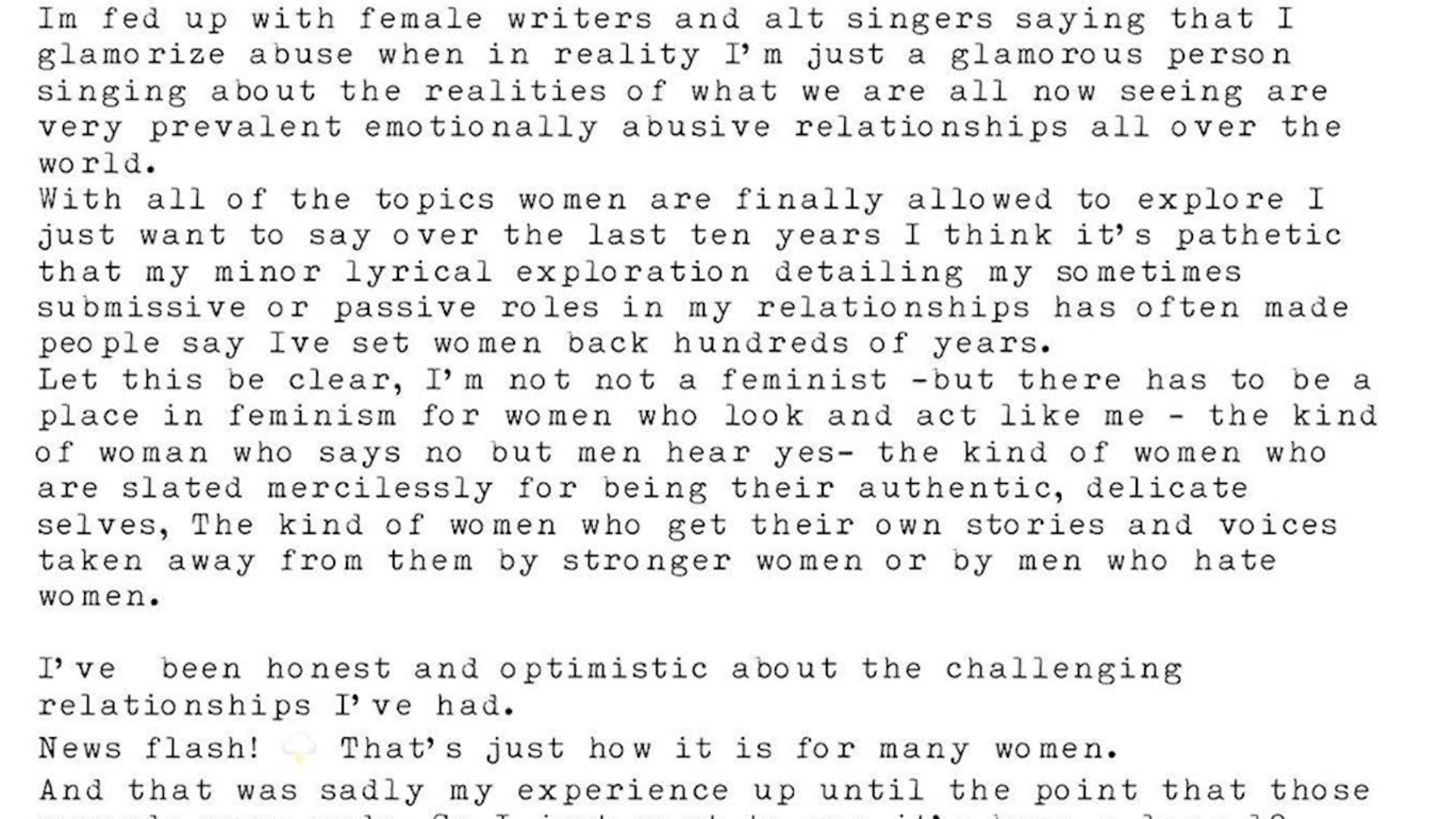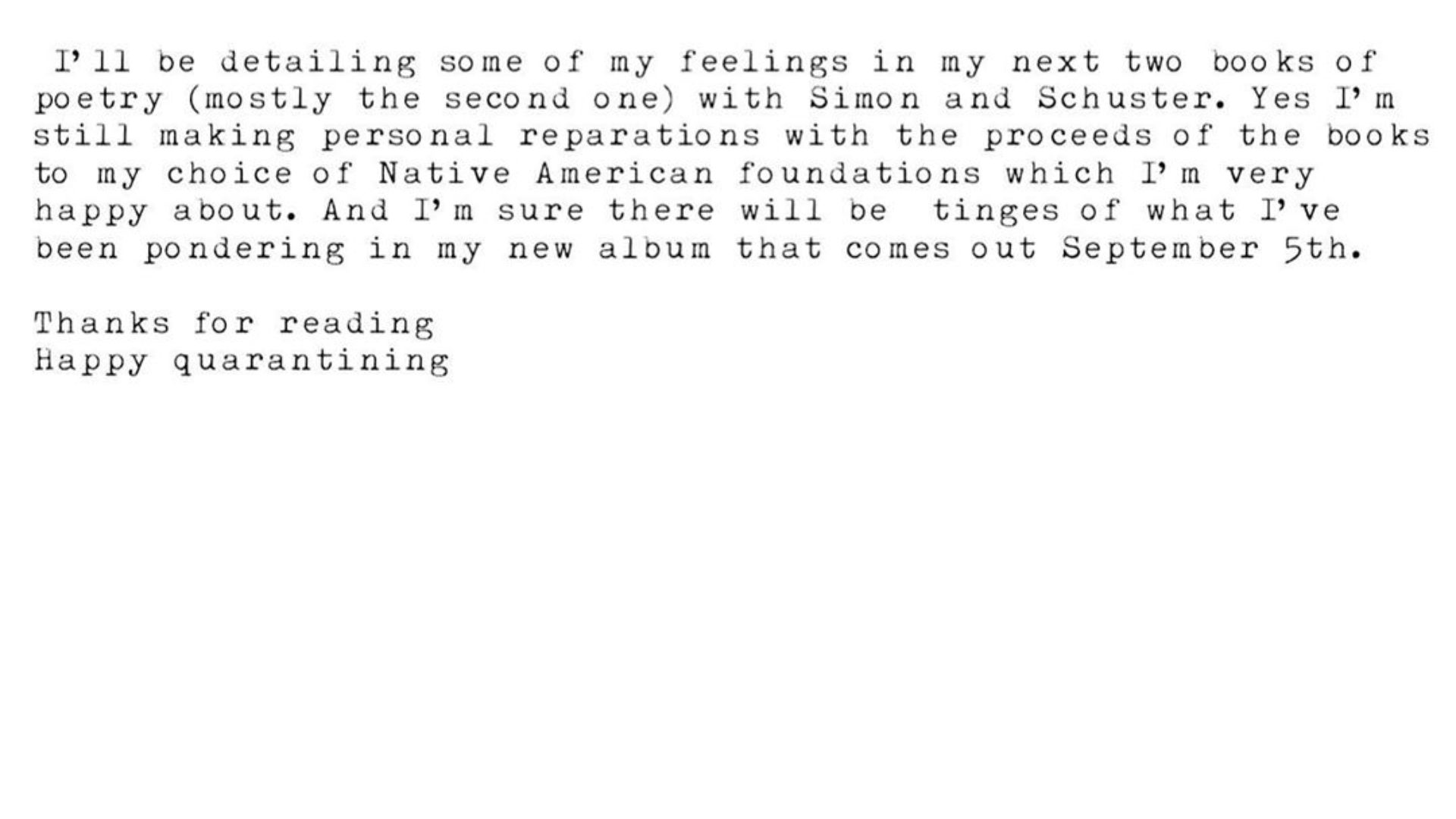
Lana Del Rey’s early morning Instagram letter begins in the way that most pointed discussions on the internet do. A question that’s not quite a question, but a call for either an attack, or a means to state a personal annoyance.
On May 21, Del Rey wrote, “Question for the culture: Now that Doja Cat, Ariana, Camila, Cardi B, Kehlani, and Nicki Minaj and Beyoncé have had number ones with songs about being sexy, wearing no clothes, f—ing, cheating etc — can I please go back to singing about being embodied, feeling beautiful by being in love even if the relationship is not perfect, dancing for money — or whatever I want — without being crucified or saying that I’m glamorizing abuse?”


The most important question Del Rey’s letter conjures up is why Black women were primarily the ones targeted in her round up of perceived musical sexpots. What’s worse is the ones listed who aren’t Black have been either accused of racism or Black face.
But what’s interesting is the fact that her list isn’t factual, either. Kehlani has not had a Billboard chart topping single or album. It seems as if she was caught by a stray—thrown into the mix to prove a rather baseless point. “These jezebels have finessed mainstream success by using their sexuality, so why can’t I be crowned queen of the charts for my abuse anthems?”
Oh, Lana.
Firstly, Del Rey’s obsession with the 1950s and ’60s has always been a bit off putting because, well, no one thrived in America during that time period but white people. The pillbox hat-wearing, rotary phone-dialing, lovestruck damsel routine was one strictly reserved for white women. Meanwhile, Black folks were quite literally fighting for the right to exist. Black women were having to identify their children’s bodies, face jail time for sitting in the “wrong” section of a bus and reconcile with being raped by gangs of white men. That era will be forever marred by the fact that Black people’s civil rights were being walked on.
Another point that must be analyzed is the very nature of Del Rey’s music.
“I can hear sirens, sirens/He hit me and it felt like a kiss/I can hear violins, violins/Give me all of that ultraviolence,” she sings on “Ultraviolence,” her 2014 song from her album of the same name.
“He hit me and it felt like a kiss” is taken from a 1962 song by The Crystals, which was written under the watchful eye of Phil Spector, an alleged abuser and convicted murderer. The song by The Crystals was said to be inspired by Eva Boyd, a Black teenaged girl who was being physically abused by a boyfriend. At the time of its release, it was called out for (you guessed it,) glorifying abuse and was subsequently shelved.
So, for Del Rey to flip a song about the abuse of a Black girl, that was deemed unacceptable 50+ years ago, and then draft up a poorly-thought out, typewritten attack mainly aimed at Black women to justify her right to do so, is appalling.
The sexuality of Black women has been policed since they were brought to this country in chains. The jezebel trope was used by slave owners to justify the rape of Black women, and since then, we have been painted as sexual gluttons who just can’t get enough. Throughout the second wave of American feminism and the sexual liberation movement, our needs were unmet. We have only begun to have our willingness to discuss pleasure positively dissected in the past 25 years. And truthfully, that’s been an uphill battle. So excuse us for finally reaching a point where sex is no longer purely a traumatizing topic for us.
It is all too easy for white women to divert attention when they feel ambushed. (But no one was talking to Del Rey, let alone calling her out, not recently at least.) Sadly, Black women are the quickest and easiest targets — even when we’re at the top of our game. There was no need for Del Rey to bring up any of the women named, but it’s clear that our success makes her uncomfortable because she has yet to attain it.
Photo credit: Getty Images/Instagram